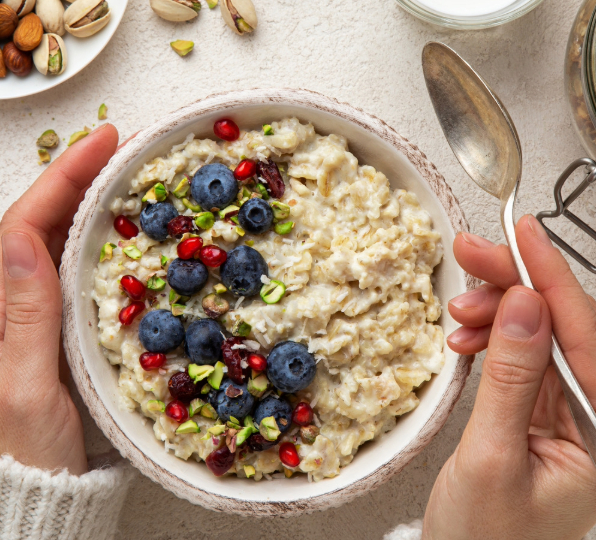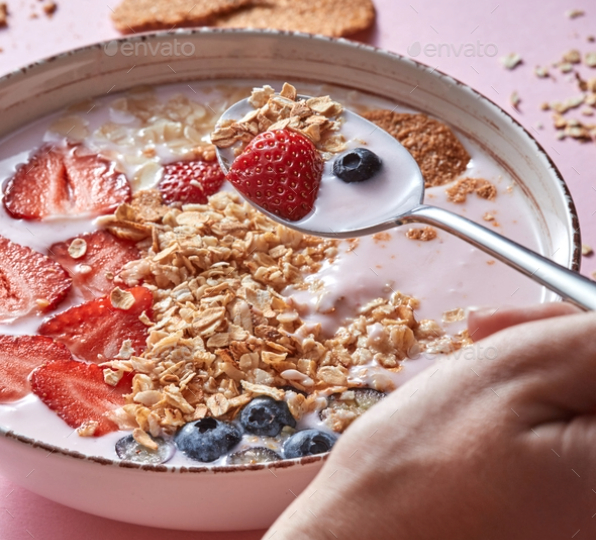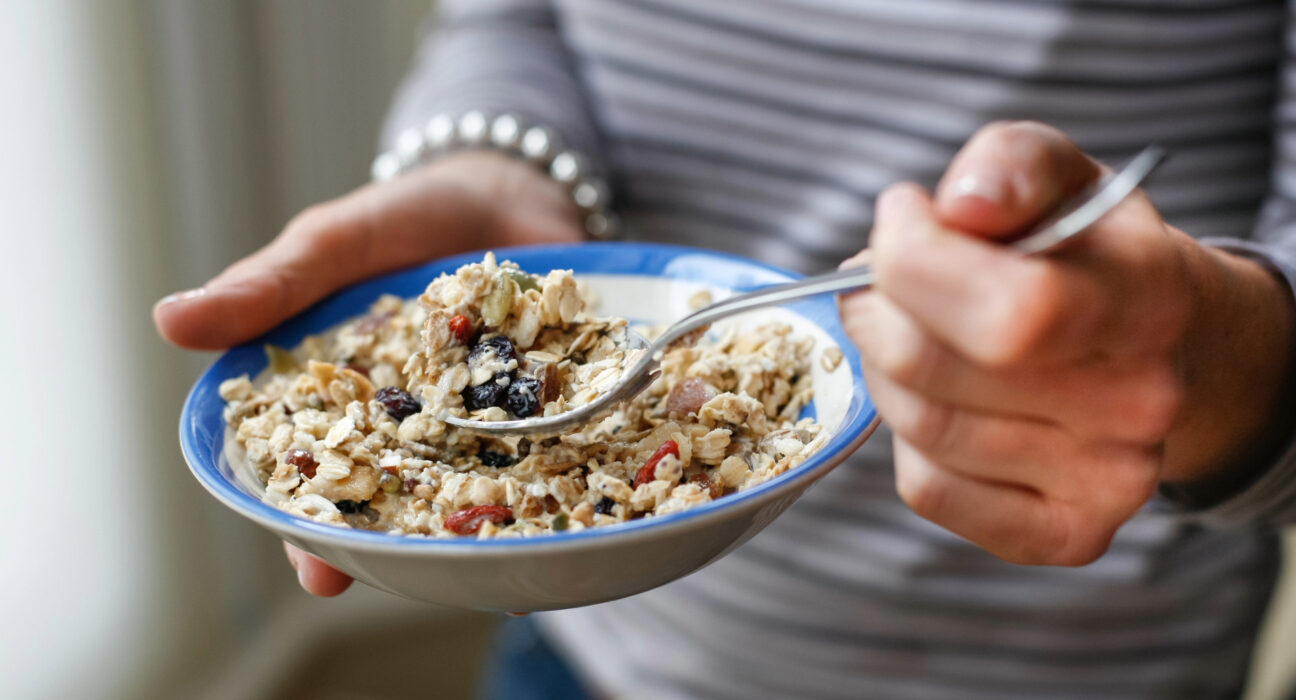Introduction:
Oatmeal, a humble breakfast staple made from oats, has gained recognition as a nutritional powerhouse in recent years. Packed with fiber, vitamins, minerals, and antioxidants, oatmeal offers a wide array of health benefits that can support overall well-being. In this article, we’ll delve into the science behind the health benefits of oatmeal and explore why this simple yet versatile grain deserves a prominent place in your diet.
1. Heart Health
Oatmeal’s high soluble fiber content, especially in the form of beta-glucan, is known to have heart health benefits. It has been demonstrated that this kind of fiber lowers LDL cholesterol, or “bad” cholesterol, which in turn lowers the risk of heart disease and stroke. Oatmeal can support cardiovascular health and improve blood lipid profiles when consumed regularly.
2. Blood Sugar Control
Oatmeal’s soluble fiber helps control blood sugar levels and is good for the heart. Beta-glucan reduces blood sugar spikes and crashes by delaying the absorption of glucose in the bloodstream. This can help control blood sugar levels and enhance insulin sensitivity, which can be especially helpful for those who already have diabetes or are at risk of getting it.
3.Weight Management
Oatmeal is a great option for helping with weight management and promoting satiety because of its high fiber content. Fiber prolongs feelings of fullness and satisfaction, which lowers overall calorie intake and hunger cravings. Including oats in your diet can promote a healthy metabolism, help with weight loss, and regulate appetite.
4.Digestive Health
Oatmeal, being high in soluble and insoluble fiber, aids in maintaining digestive health by encouraging regular bowel movements and decreasing the likelihood of constipation. Fiber gives stool more volume, which softens and makes it easier for the digestive tract to process. Furthermore, oatmeal functions as a prebiotic, supporting a healthy microbiome and feeding good gut bacteria—both of which are necessary for the best possible digestion and immune system performance.
5.Nutrient Density
In addition to being high in fiber, oatmeal offers a variety of vital nutrients, such as vitamins, minerals, and antioxidants. Manganese, phosphorus, magnesium, iron, and B vitamins like folate and thiamine can all be found in abundance in oats. Oats’ nutritional value is further increased by the presence of antioxidants like avenanthramides, which also have anti-inflammatory and anti-itching qualities.
6. Versatility and Convenience
- One of the greatest advantages of oatmeal is its versatility and convenience. Whether you prefer old-fashioned rolled oats, steel-cut oats, or instant oatmeal packets, there are numerous options to suit your taste preferences and lifestyle. Oatmeal can be customized with a variety of toppings and flavorings, such as fresh fruit, nuts, seeds, honey, cinnamon, or nut butter, making it a delicious and nutritious breakfast or snack option.
Incorporating Oatmeal into Your Diet: Here are some easy and delicious ways to incorporate oatmeal into your daily meals:
- Start your day with a warm bowl of oatmeal topped with berries, sliced bananas, and a drizzle of honey.
- Add oats to smoothies for extra fiber and thickness.
- Use oats as a binding agent in homemade granola bars, muffins, or cookies.
- Swap breadcrumbs for oats in meatloaf, meatballs, or veggie burgers for added nutrition.


Conclusion:
With its impressive array of health benefits, oatmeal truly earns its reputation as a nutritional powerhouse. Whether you’re looking to support heart health, manage blood sugar levels, promote digestive health, or maintain a healthy weight, oatmeal offers a delicious and convenient way to nourish your body and fuel your day. By incorporating oatmeal into your diet regularly, you can enjoy a wide range of health benefits and take a step towards better overall well-being. So, embrace the oat and reap the rewards of this versatile and nutritious grain!












